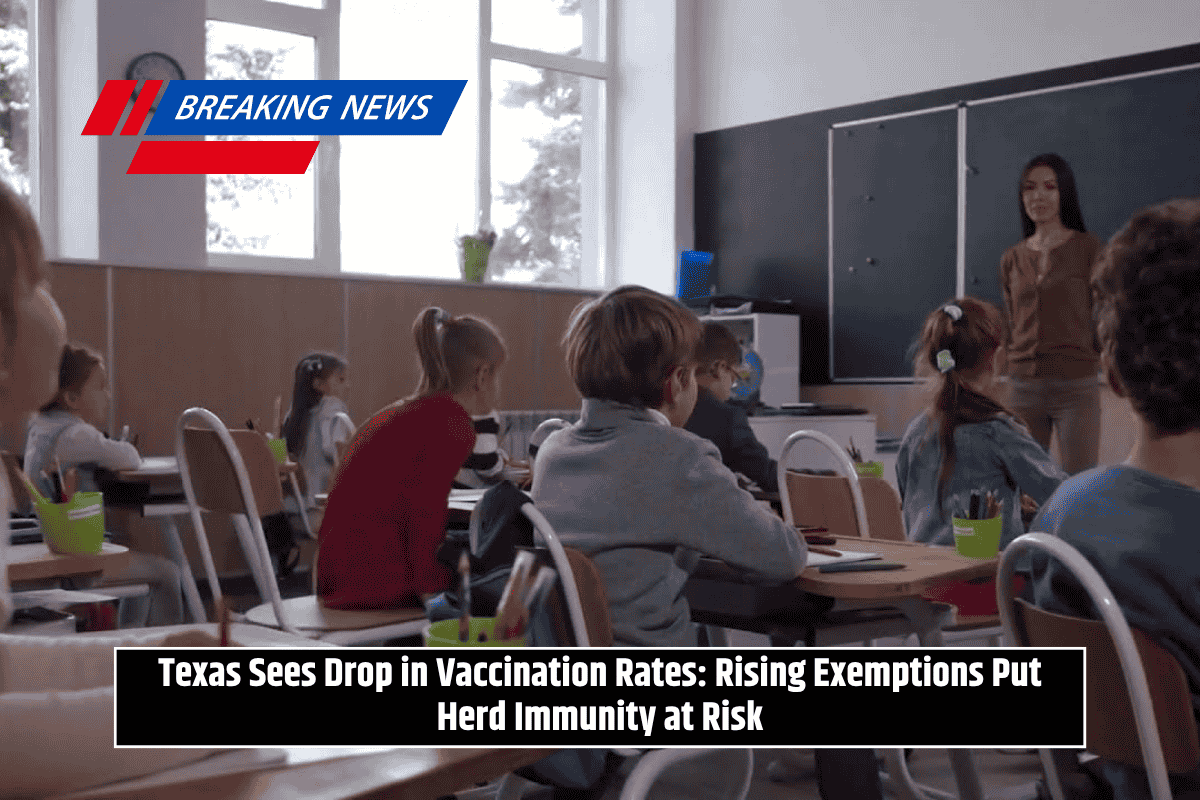Recent data from the Centers for Disease Control and Prevention (CDC) has raised alarms about a worrying trend in Texas: fewer kindergarteners are receiving routine childhood vaccinations, and the number of parents opting for vaccine exemptions is increasing.
This decline in immunization rates comes at a time when measles cases are on the rise across the country, leading to tragic deaths in some regions.
Texas Vaccine Requirements and Exemptions
Each year, Texas mandates that children entering kindergarten and seventh grade must provide proof of immunizations. Parents can request exemptions, but only if they meet specific state requirements.
Dr. Dwayne Broussard, president of the Harris County Medical Society, emphasized that vaccinations are age-specific and that parents should consult with their doctors to determine which vaccines are needed at different stages of their child’s life.
For kindergarteners, essential vaccines include the MMR vaccine (measles, mumps, and rubella), as well as vaccines for hepatitis A and B.
The MMR vaccine is typically given twice: once at a young age and again around age five. Seventh-graders have fewer vaccine requirements, with tetanus and meningitis being among the essential shots.
Rising Vaccine Exemptions and Consequences
While vaccination rates have traditionally been high in Texas, the trend is shifting. In Galveston County, the percentage of parents requesting vaccine exemptions has risen from 1 percent in 2015 to nearly 4 percent in 2025.
Harris County experienced an even larger increase, with exemptions more than tripling during the same period.
“When vaccine rates drop, diseases like measles can spread quickly,” Dr. Broussard warned. He pointed to the tragic outbreak in West Texas, where two children died from measles due to low vaccination rates.
Impact of Declining Vaccination Rates
Although vaccination rates in the Houston area remain relatively high, they have fallen since 2020. Harris County, for example, saw a nearly 6 percentage-point drop in MMR vaccination rates. The following table highlights the changes in MMR vaccination rates for kindergarteners across several counties over the last five years:
| County | 2020 | 2024/2025 | Differential |
|---|---|---|---|
| Harris | 96.77% | 90.95% | -5.82% |
| Galveston | 97.14% | 97.14% | 0% |
| Fort Bend | 98.62% | 95.23% | -3.39% |
| Montgomery | 95.76% | 92.67% | -3.09% |
| Liberty | 97.89% | 96.61% | -1.28% |
| Waller | 98.17% | 95.79% | -2.38% |
| Brazoria | 97.75% | 96.21% | -1.54% |
The World Health Organization (WHO) recommends a 95 percent vaccination rate to maintain herd immunity. Some Texas counties, however, have now fallen below that threshold, raising concerns about the risk to public health.
Why Vaccination Matters
Dr. Broussard highlighted the importance of vaccinations in preventing serious illnesses. He compared vaccines to seatbelts: “The seatbelt didn’t prevent the accident, but it did prevent you from going through the windshield.”
Similarly, vaccines may not prevent all infections, but they significantly reduce the risk of severe illness and complications.
Following the recent measles outbreak in West Texas, more parents have started inquiring about the MMR vaccine for their children. Dr. Broussard urges parents to engage in open discussions with their doctors to clear up any misinformation and make well-informed decisions for their families.
If you’re unsure about your child’s immunization status, it’s essential to contact your pediatrician and ensure they are up to date on their vaccinations. Protecting your child with the right vaccines not only safeguards their health but also helps prevent the spread of dangerous diseases like measles.
